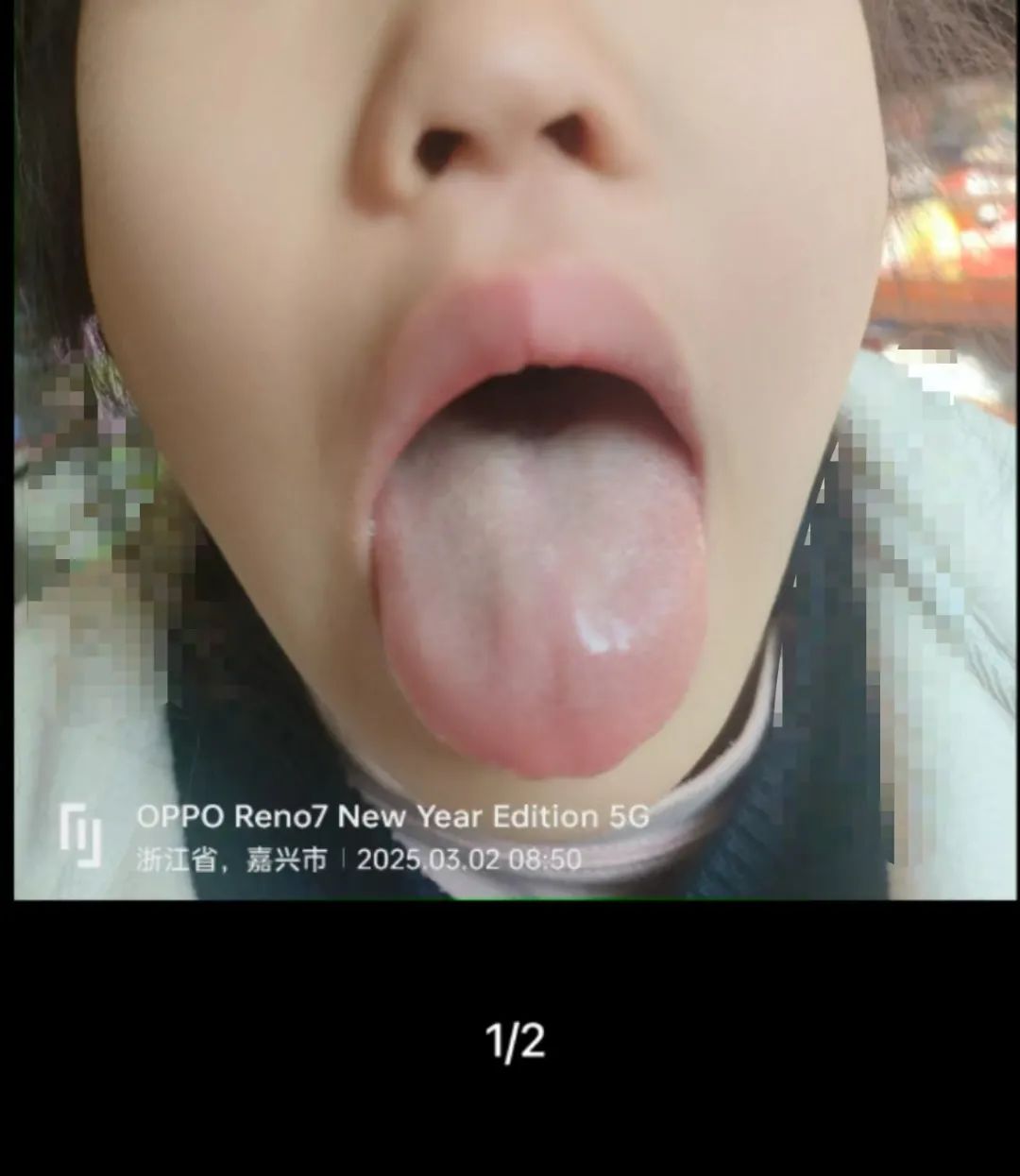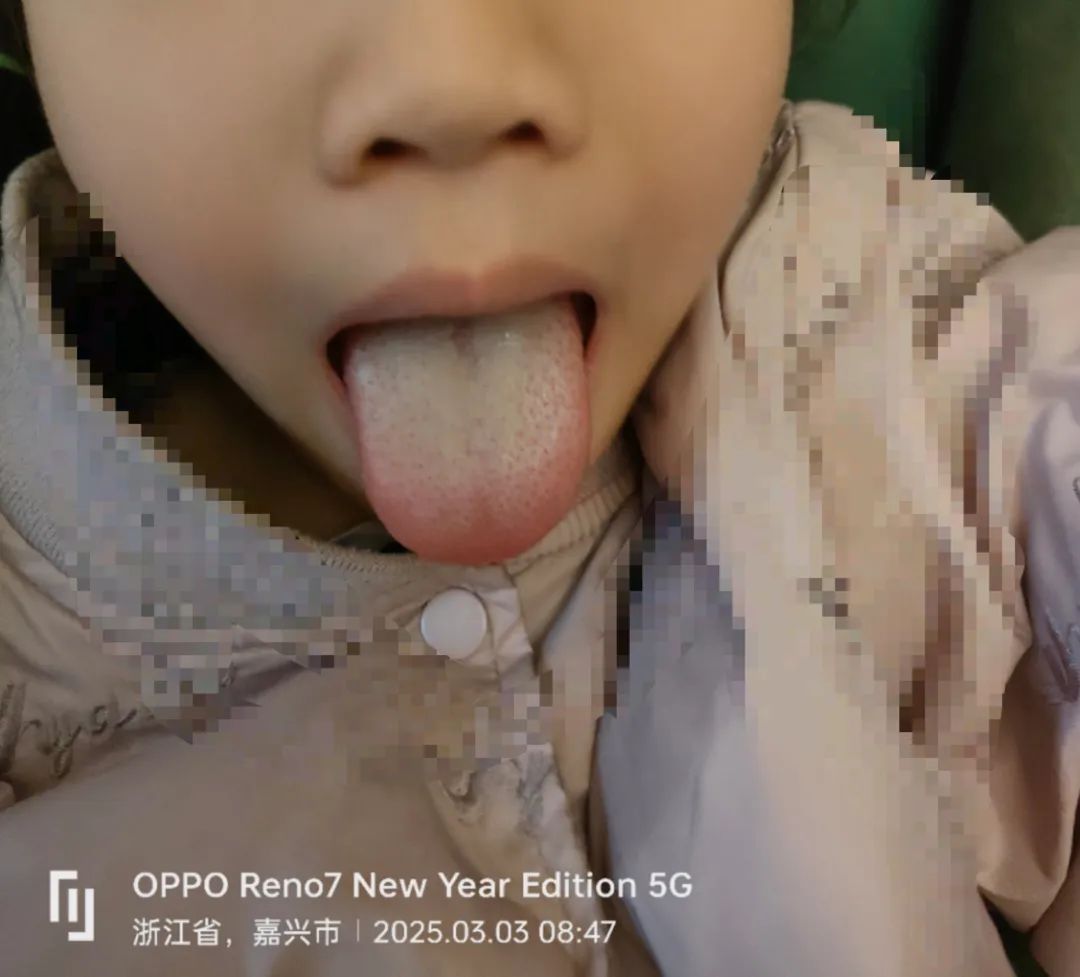In TCM diagnosis, the tongue coating acts like a small mirror of the body, reflecting a lot of health information. But can we fully determine body issues based solely on the tongue coating? Click the video below to find out:
Text Content
One Sunday, a mother sent me a picture of her child’s tongue coating.

From the picture, the tongue coating looked relatively clean, without that thick, greasy feeling. However, the child’s symptoms were quite severe, with a persistent cough that wouldn’t stop. Moreover, the child had no appetite and didn’t want to eat anything, feeling lethargic and just wanting to lie down.
After asking detailed questions about the child’s appetite and bowel movements, I diagnosed it as food stagnation, which is caused by indigestion.
Some may wonder, how can there be food stagnation with such a clean tongue coating?
I instructed the mother to treat the child according to the method for food stagnation. That night, the child developed a fever, and I told the mother not to panic and to continue with the food stagnation treatment. By Monday, there was a change.
The child’s cough had significantly improved, but upon examining the tongue coating, it had become thick and greasy.

At this point, some may be puzzled, as the tongue coating was clean yesterday, how could it become thick and greasy after treatment? Has the condition worsened?
Actually, it is not; this is precisely the body’s original condition starting to manifest. The change in tongue coating has a certain lag, sometimes the body may already show symptoms, but the tongue coating hasn’t had time to “change its face”; it often takes 1 to 2 days to reflect corresponding changes.
Just like this time, the fever occurred on Sunday night, and by Monday, the temperature had dropped a bit. Although the tongue coating was thick and greasy, the child’s appetite had returned, they wanted to eat, and the cough had decreased. This indicates that my initial diagnosis of food stagnation was accurate.
When assessing the body’s condition, we cannot focus solely on the tongue coating. While the tongue coating can provide us with some clues and is an important reference for doctors’ diagnosis, it is not the only standard.
More importantly, we need to consider other symptoms, such as appetite, normal bowel movements, presence of fever, mental state, etc., and integrate this information for a comprehensive assessment, leading to a more accurate conclusion.
 If you encounter issues in parentingyou can join Dr. Chen’s WeChat group for discussion
If you encounter issues in parentingyou can join Dr. Chen’s WeChat group for discussion
Long press to recognize the QR code below
Add Qingqing as a friend

Expert Profile
EXPERT PROFILE
Chen Zhuanzhuan
Attending physician, graduated from Shanghai University of Traditional Chinese Medicine
Born into a family of TCM practitioners, has been engaged in pediatric tui na for many years
Specializes in treating common respiratory and digestive diseases in children

Attending physician, graduated from Shanghai University of Traditional Chinese Medicine, born into a family of TCM practitioners, has been engaged in pediatric tui na for many years, skilled in using the Sanzi Jing style of pediatric tui na techniques and formulas to treat common respiratory diseases (such as pediatric colds, fevers, coughs, bronchitis, asthma, rhinitis, tonsillitis, adenoid hypertrophy, etc.); digestive diseases (such as pediatric abdominal pain, diarrhea, constipation, vomiting, anorexia, mesenteric lymphadenitis, etc.) and conditions like nocturnal enuresis, night crying, and growth retardation in children, with significant efficacy.
Additionally, skilled in auricular diagnosis, using ear acupressure to diagnose and treat various acute and chronic diseases. For example: various sprains and strains, headaches and other pain-related diseases, periodontitis, pharyngitis, tonsillitis, cholecystitis, influenza, whooping cough, bacillary dysentery, mumps, and other inflammatory and infectious diseases, gastrointestinal neurosis, cardiac neurosis, arrhythmia, hypertension, vertigo, hyperhidrosis, menstrual disorders, enuresis, neurasthenia, hysteria, and other functional disorders, urticaria, asthma, allergic rhinitis, allergic colitis, allergic purpura, and other allergic and hypersensitivity diseases, hyperthyroidism or hypothyroidism, diabetes, obesity, menopausal syndrome, and other endocrine and metabolic disorders.


